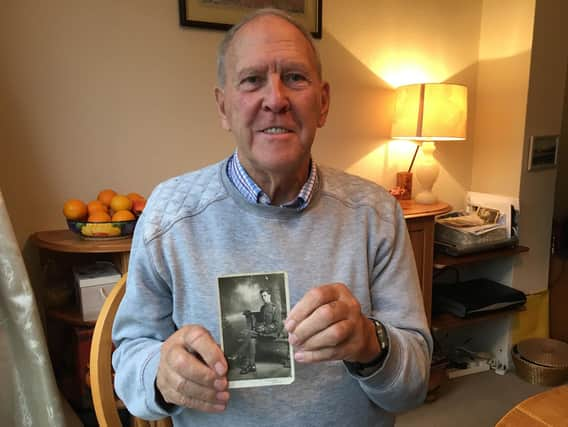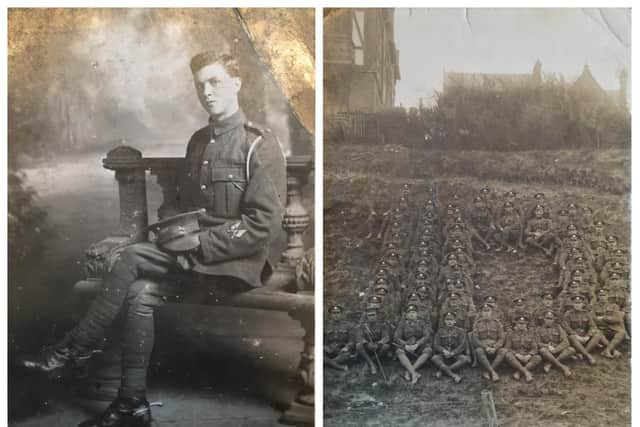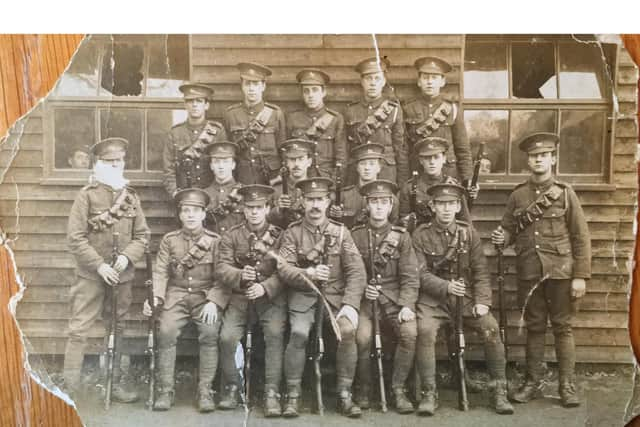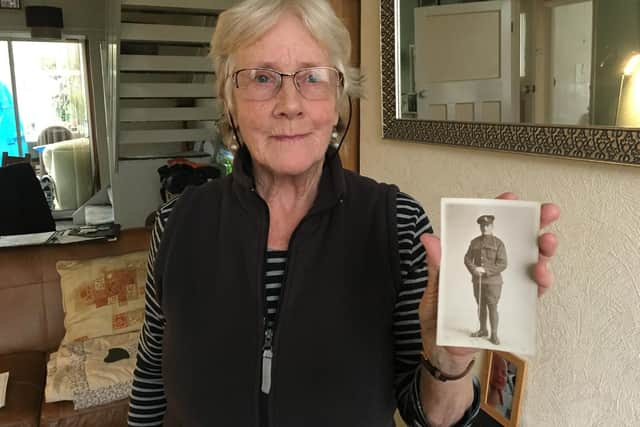Haunted Northampton fathers rarely spoke of horrors of First World War


Perhaps that is a familiar refrain for other sons and daughters of men who served in and survived the Great War.
Remaining stoic in the face of adversity - Keep Calm and Carry On,"I am just going outside and may be some time" - is a well-known British stereotype.
Advertisement
Hide AdAdvertisement
Hide AdSome who returned home from the trenches and muddy fields of the war - burdened with the horrors of what they had seen, heard and felt - chose not to share many memories, opting instead for a stiff upper lip.


"I think they wanted to forget about it," Bill added.
His father, who lived in Semilong, served with the Northamptonshire Regiment and the cavalry - in a postcard of a uniformed Private Birch, spurs can be seen on his boots.
"I think they had a disastrous charge and they were disbanded so he joined the Northamptonshire Regiment," said Bill, 82, who lives in Whitehills with his wife Margaret.
"He got thrown off his horse and that probably saved his life."
Advertisement
Hide AdAdvertisement
Hide Ad

"He was 16 or 17 at the time he joined; a lot of them lied about their age."
Private Birch, who was born in 1898, went on to serve as a messenger, which saw him run along the trenches to deliver missives to officers.
Bill describes his father, who later served in the Home Guard during the Second World War, as a good athlete and footballer, qualities that would have served him well in his messenger role.
"He told me that at certain points he really had to run because the Germans had sights trained on particular spots along the trenches," said Bill.
Advertisement
Hide AdAdvertisement
Hide Ad

Rosemary Lane's father, George Reginald 'Reg' Inwards (born in 1897), was another quiet type who returned from the front after enlisting as a 17-year-old.
As a result, she knows very little about Reg's wartime involvement other than that he had been injured and spent time in a prisoner of war camp.
"He never spoke about his experience," said Rosemary, from Spinney Hill.
"We tried but we were young children then so we wouldn't have had the inclination to keep trying and trying like we would have now."